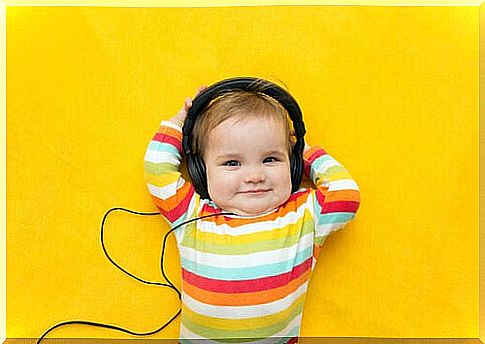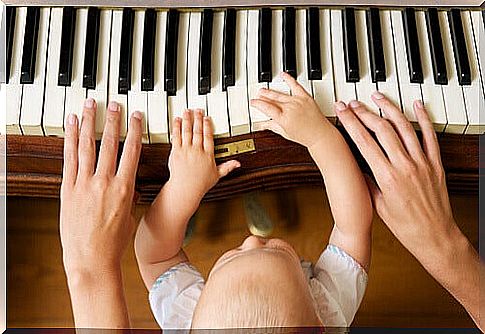Does Music Make Kids Smarter?

Have you ever heard of the “Mozart effect”? Have you ever heard that story that music makes kids smarter? Do you know where all these beliefs that relate music and intelligence come from? Have you ever stopped to wonder if this claim has any scientific basis?
There are many circumstances or activities that can help enhance intelligence in children. Music is one of them, but it’s not the only one. Many studies have tried to establish a link between learning a musical instrument and intelligence. And then? Who doesn’t learn to play an instrument will be less intelligent?
The Baby Mozart project , the Mini Einsteins cartoon series, and dozens of early stimulation programs and projects have made us believe that music makes children smarter. To achieve this goal, classical music was identified as especially beneficial, highlighting the works of Mozart.

So you could see – and see – parents and teachers, and even pregnant mothers, putting on classical music for babies to hear, taking their kids to music lessons as soon as possible, as if they’d discovered the magic ingredient of intelligence. The big question then is: did all this really work? Does music really make kids smarter?
Well no. Or at least not enough to speak of a notable benefit. The idea that playing classical music would make children smarter is controversial in light of a literature in which we find studies with contradictory results.
The study that in 1993 found that music makes children smarter could not be reproduced nor did it allow for an expansion of the experiment. In other words, what would be a scientific study actually wasn’t. In fact, the idea was a spectacular marketing tool, there’s no doubt about that.
Music has many benefits for the child’s brain
With all that, I don’t mean that music is useless. In fact, music has many benefits for the brain of children as well as the brain of adults. Many researches have focused exactly on proving the effect that music exerts on the brain.
It seems that music prepares our brains for certain types of thinking. For example, several researches have found that after listening to classical music, adults can do certain spatial tasks more quickly.
But why does this happen? Apparently the “classical musical pathways” in our brain are similar to the pathways we use for spatial reasoning. Thus, when we listen to classical music, the spatial pathways would already be “lit” and ready to be used.
This pre-preparation makes it easier to perform spatial tasks. But the effect only lasts for a short time. Our improved spatial abilities disappear approximately an hour after we stop listening to classical music.

However, learning to play an instrument can have more lasting effects on spatial reasoning. In several studies, children who took piano lessons for six months improved their puzzle-solving skills and other spatial tasks by up to 30%. In this sense, researchers believe that music training creates new pathways in the brain.
Children who study music have also been found to improve auditory processing, as seen in brain scans. This is important because auditory processing skills are critical to language development as well as learning a second language or focusing better in noisy environments.
Other research has also found that music can have benefits for cognitive functioning and can also help reduce aggression, increase tranquility, reduce stress and improve mood. However, that doesn’t exactly mean that music makes kids smarter.
After all, can we say that music makes children smarter?
All of the above leaves no doubt that music benefits children and adults in many ways, but making it “smarter” or getting better at school is probably not one of its benefits. Yes, music helps. But not as much as it sounds, or at least as we were led to believe.
Several studies show that children who take music classes or who receive music education in schools also function better in intellectual pursuits. But families and schools that invest in their children’s music education and other arts are likely to be different in many ways from families or schools that don’t. This is probably the real cause of the observed differences.
Several researchers have tried to replicate findings of modest gains in intelligence, intellectual skills, and academic achievement. However, the results of his studies of music education in children have not shown that music makes little ones smarter, even some of the studies have revealed losses.

In fact, what we need to do is play and talk with our kids. Hugging, kissing, giving affection… Singing, dancing, reading, discovering with them… Stimulate creativity, feed curiosity…
Does music make children smarter? What matters? If what you really want is for your kids to be smarter, spend more quality time with them, lots of time. This without a doubt is a much more decisive factor than the music. Do not fool yourself!








